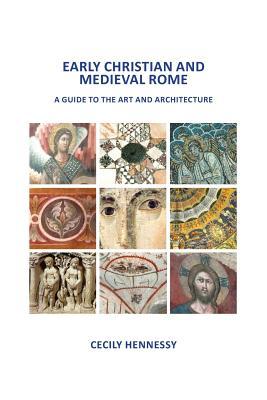Content
Early Christian and Medieval Rome looks at the fascinating art and architecture in Rome dating from between about 300 and 1300. In the fourth and fifth centuries, Rome was the most important city in the west for the early development of buildings for Christian use and of imagery employed by both the Church authorities and by the practising Christians. Many Christians still had links with traditional Roman religions and with Judaism. It remained the most prestigious centre in the west in the following centuries, despite political upheavals. With the papacy established at its heart, patronage and artistic production prospered, with high points in the ninth and again in the twelfth and thirteenth centuries.
Material
This book explores churches, baptisteries, houses and catacombs with extraordinary mosaic and painted decoration. It also includes sculpture, reliquaries, icons, ivories and metalwork, which were used throughout the period.
Audience
It is designed to appeal to the casual visitor to the city as well as those seeking an art-historical understanding of the material. It particularly points out the cultural exchange between Christianity in the west and in the east (the Byzantine empire).
How to use
It is organised geographically as a travel guide with sites close to each other grouped together suggesting itineraries. It gives both historical and art-historical information, encouraging exploration. It also aims to suggest how to understand the subject matter, meaning and style in imagery and to look closely at works of art. It is not intended to be comprehensive, but to highlight significant material and to introduce the reader to the remarkable sites and experiences of early Christian and medieval Rome.
